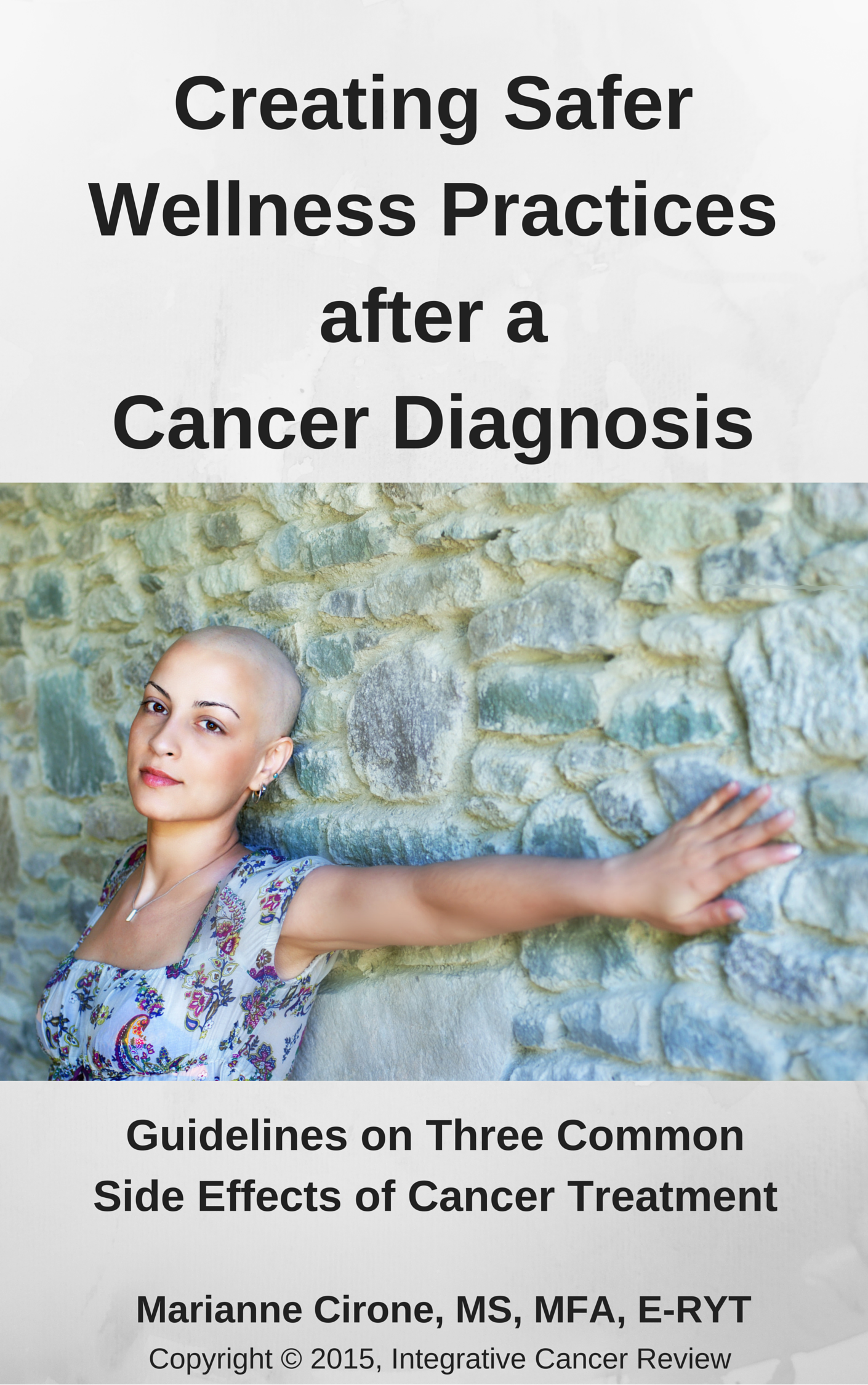
Nutrition and Cancer: Making the Right Choices Easier
“Changing the way I eat has been the single most important part of receiving the cancer diagnosis. I have started to eat fresher, organic food and I have more energy now than before I was diagnosed. It didn’t happen overnight, but the shift in my eating habits helped to improve how my whole family eats.”
— Jody, age 37
Nutrition may be one of the single most controversial aspects of cancer care.
Many physicians do not directly address nutrition as part of a treatment plan, while many integrative practitioners consider it a crucial part. Of those who do address nutrition, whether they are more conventional dieticians and doctors, or more holistic practitioners, there may be widely divergent opinions as to what constitutes a healthy diet, either before or after a cancer diagnosis.
What Constitutes Good Nutrition after Cancer?
Some health practitioners argue for primarily vegan diets, with no meat or dairy, while other practitioners argue for paleo—mostly meat and vegetables with few, if any refined carbs. Some integrative practitioners point to the toxic effects of meat and dairy, while others recommend a constantly brewing crockpot of bone broth. Some practitioners suggest completely eliminating refined sugar consumption as the first step to healing from cancer, while others scoff at that idea. And what about patients who are so affected by treatments that getting any food down is a major accomplishment?
The American Institute for Cancer Research, a non-profit organization devoted to research on diet, nutrition and cancer, states:
“Over the last 30 years, scientists have found convincing evidence that what you eat, how you move and how much you weigh can lower your risk for many cancers.”
The AICR makes three basic recommendations for improving nutritional status, starting with creating a healthier meal plan that they call “The New American Plate,” from what has been an “old American plate” based around a main course of meat.
These recommendations are:
- ADD: cancer protective foods to your diet, by increasing the intake of nutrients such as phytochemicals, salads, fiber and whole grains.
- SUBTRACT: foods from the diet that are associated with cancer risk.
- REPLACE: large portions of calorie-dense foods, by allowing plant foods to take up more room on the plate. The AICR suggests aiming for meals that are made up of 2/3 or more or plant-based foods.
The AICR states that their review of the evidence does not show additional benefits from following a completely vegan diet, and that poultry and fish are not linked to increased risk for any specific cancers. Note that other cancer nutrition groups do advocate total veganism, or even vegetarianism as the healthiest choice.
The AICR recommendations DO include the following:
- Limit consumption of calorie-dense foods, like fast food, and avoid sugary drinks, which will help the maintenance of a healthy weight.
- Focus on eating mostly plant-based foods, including vegetables, fruits, whole grains and legumes.
- Limit the consumption of red meat to less than 18 ounces per week, and avoid processed meat.
- Limit alcoholic drinks to no more than two drinks per day for men and one drink per day for women.
- Limit the consumption of salt.
Individualized Diets for Cancer Care
For some individuals dealing with a cancer diagnosis, especially during treatment, keeping weight on may be one of the major objectives of dietary recommendations. This is one of the reasons that the National Cancer Institute recommends that people with cancer get individualized recommendations.
“Patients with cancer should receive evidence-based, individualized recommendations from a nutrition expert, based on a number of factors, including their type of cancer, stage of disease, planned treatment, nutrition history, weight history, and lab values,” states Marnie Dobbin, MS, RDN, CNSC, a clinical research dietitian at the NIH (National Institutes of Health) Clinical Center who works with patients who have cancer.
However, according to the NCI, not all patients receive these recommendations from an oncology-trained nutrition professional, so many patients will search for this information online. According to a survey of 21 cancer center sites done by Colin Champ, MD, of Thomas Jefferson University and his colleagues who reported in a March 2013 edition of Nutrition and Cancer, what they learn depends on which websites they visit.
Overall, the researchers found that recommendations across the cancer websites were “consistently inconsistent.” The websites belonged to members of the National Comprehensive Cancer Network (NCCN), an alliance of major cancer centers in the United States. Some researchers believe that the lack of consensus in online sources, in part, reflects a lack of sufficient scientific evidence to develop specific dietary recommendations.
While general guidelines can be helpful, more personalized guidelines may be important as well. One set of guidelines for all people does not take into account our individual differences and needs.
Ayurveda, the sister science of yoga dealing with healthy living, also asserts that each individual will require individualized dietary guidelines, depending on a variety of factors, ranging on their stage of life to their inherent constitutional makeup. Ayurvedic dietary recommendations will tend to be mostly vegetarian, however, the individual recommendations can look much different than what we would see in Western dietary guidelines and will be addressed in the Ayurveda section at a later date. A good introductory resource is Ayurvedic Healing: A Comprehensive Guide by Dr. David Frawley.
Tips on Healthy Eating for Cancer Care
In light of all these questions—some of which will be addressed in future posts, what are a few guidelines that people can keep in mind when deciding what to eat? A main focus, in addition to “what” to eat, is “how” to eat and “how” to look at eating choices. Ten guidelines for this process include the following:
- Maintain a compassionate relationship with yourself and with food. Let go of “should” and embrace “could” when it comes to your food choices.
- Observe how you feel when you eat certain foods – both immediately after and in the long run, and share this information with your nutritional health team.
- Eat slowly and mindfully. The more present that you are when you are eating, the more likely that your digestion will work, the more nutrients you will absorb from whatever you are eating, and the more in tune with your body’s wisdom that you will be become.
- Know that your needs and preferences may change. Just as your dietary preferences change when you have a cold or the flu, your “best” diet may change as you progress through stages of treatment and beyond. Marc David, a holistic nutritionist and author of Nourishing Wisdom: A Mind-Body Approach to Nutrition and Well-Being, makes the distinction between diets intended to be “therapeutic” for a specific length of time, versus those that are intended to be used for the long-term for maintenance purposes.
- Seek out advice from people who are supportive and that you connect with. Being bullied or getting a hard sell on an eating program can both be red flags.
- Balance theory with reality. The most “nutritious” thing in the world won’t be healthy for you if you it tastes horrible and you won’t eat or drink it. And, better taste can be associated with better digestion and nutrient assimilation.
- Lean into change. Often, making small changes and sticking to them over time in order to develop habits can be more effective than tackling huge changes all at once.
- Be prepared. Cancer-focused chef and nutrition educator, Jo Cessna, teaches a class called “The Fridge Friend,” based on the concept of “batching” preparation of a variety of ingredients such as diced vegetables and high fiber grains to keep handy to create quick and nutritious meals at the last minute.
- Let your friends and family know your intentions. If people are bringing you meals or helping you with them, it is not unreasonable to let them know if you have any dietary restrictions. And they may be inspired to make changes themselves.
- Use local resources. There may be local organizations that either provide meals or offer classes in healthy eating and food preparation, either for free or at a reduced cost.
Some of the most popular books for cancer-related nutrition are by Rebecca Katz, MS. Rebecca creates delicious recipes, using what she calls “the power of yum.” Rebecca’s books, The Cancer-Fighting Kitchen: Nourishing, Big-Flavor Recipes for Cancer Treatment and Recovery and One Bite at a Time, Revised: Nourishing Recipes for Cancer Survivors and Their Friends offer delicious recipes that targeted specific issues of cancer treatment, such as metallic taste or mouth sores.
Rebecca’s book, The Longevity Kitchen: Satisfying, Big-Flavor Recipes Featuring the Top 16 Age-Busting Power Foods, 120 Recipes for Vitality and Optimal Health, brings the lessons of healthy and tasty food to the broader public.
See more on Nutrition:
- Boost Immunity with Ayurveda
- Tips for Preparing for a Mastectomy and Other Surgeries
- 2017 Breast Cancer Rehabilitation and Wellness Summit – FREE Access to 45 International Expert Speakers
- The Cancer Revolution: A Groundbreaking Program to Reverse and Prevent Cancer by Leigh Erin Connealy, MD
- Q&A with Holistic Health Coach Amanda Sabatino
- Diet for Cancer: Eating from the Colors of the Rainbow















